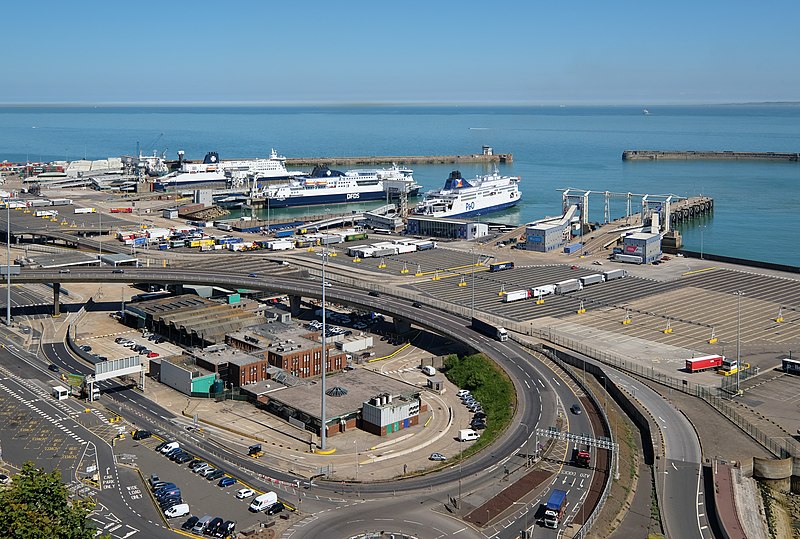
The Port of Dover is considering reclaiming land from the sea to mitigate potential delays when the EU's forthcoming biometric border control system, known as the Entry Exit Scheme (EES),
is implemented.
Doug Bannister, the Port's CEO, believes that reclaiming some land will provide additional space for passenger processing, reducing the risk of long queues at the port. The EES, originally scheduled for introduction in 2022, is now expected to commence in autumn 2024. Under this system, individuals entering the EU will be required to register their fingerprints and a photograph in addition to their passport.
In recent years, the Port of Dover has experienced recurring queues during peak times, exacerbated by post-Brexit checks that have added to wait times. While traffic volumes have nearly returned to pre-Covid levels this summer, there have been no significant issues at the port. Nevertheless, Mr. Bannister has expressed concern that the EES could lead to bottlenecks, particularly for non-EU citizens complying with the new requirements.
Mr. Bannister stated that collaboration with authorities on both sides of the Channel over the past year has boosted his confidence. He also suggested the possibility of developing an app to handle part of the registration process before passengers arrive at the port. However, he stressed the need for a solution to prevent "unacceptable" border queues.
Plans already exist to reclaim land in the port's western docks for cargo use, but Mr. Bannister is now considering accelerating the project for passenger use when the EES begins. This accelerated timeline would incur an additional cost of £2 million, with the goal of finalizing the design by year-end and commencing work in the spring, with hopes of government financial support.
Mr. Bannister emphasized the need for prompt decisions in this regard. Dover is not the only port taking measures to address potential EES-related challenges. Getlink, the owner of Eurotunnel, is investing £100 million in creating an area with 75 stands for people to register their data. The company has developed technology to process customs controls digitally, enabling goods to cross the Channel as quickly as before Brexit.
The Port of Dover reported its busiest day since before the pandemic on July 29th, with 800 cars arriving every hour at peak times. During the summer, the average wait time during busy periods was 41 minutes. The port handled 1.14 million passengers traveling to France over the summer, approaching the 1.19 million in 2019. Photo by DeFacto, Wikimedia commons.



































